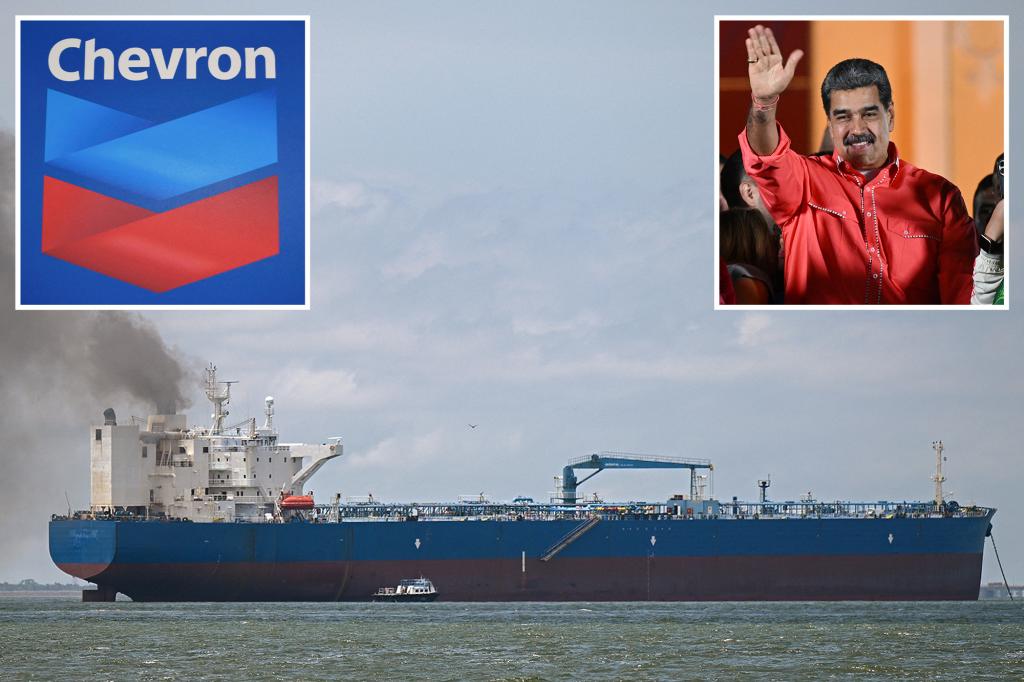Chevron’s Venezuelan Assets: A Delicate Balance Amidst Ongoing Oil Import Ban
Chevron’s operations in Venezuela remain a focal point of interest as the company navigates a complex landscape shaped by ongoing U.S. oil import bans. This situation not only complicates Chevron’s business strategy but also raises critical questions regarding U.S.-Venezuela relations and their broader implications for the global oil market.
The Current Landscape
Despite holding a significant stake in Venezuelan oil assets, Chevron faces stringent restrictions that have hindered its ability to export oil from the country. The U.S. sanctions, aimed at pressuring the Maduro regime, have created a paradox: while Chevron maintains a foothold in Venezuela, the company’s operational capabilities are severely limited. As of late 2023, Chevron’s production levels have shown resilience, yet the inability to export oil has created a backlog of unsold crude, leading to an urgent need for a reevaluation of strategies.
Understanding U.S.-Venezuela Relations
The relationship between the United States and Venezuela has been fraught with tension, particularly since the imposition of sanctions in 2019. The U.S. government has maintained that these sanctions are a response to human rights violations and undemocratic practices by the Maduro administration. However, critics argue that such measures disproportionately affect the Venezuelan populace and complicate the economic landscape.
Recent developments indicate a potential thawing in relations, with discussions around easing sanctions to facilitate humanitarian aid and stabilize the Venezuelan economy. Nevertheless, any significant shift in policy would require careful consideration of the geopolitical ramifications, especially in the context of rising global oil prices and supply chain disruptions.
Impacts on the Global Oil Market
The implications of Chevron’s operations in Venezuela extend beyond corporate interests; they resonate throughout the global oil market. Venezuela, once a key player in oil production, has seen its output plummet due to years of mismanagement and sanctions. As a result, global oil prices have experienced volatility, influenced by varying levels of supply from OPEC nations and geopolitical tensions.
According to industry analysts, if Chevron could successfully resume exports, it might help alleviate some pressure on global oil prices. The potential re-entry of Venezuelan oil into the market could provide much-needed relief, especially as countries grapple with energy security concerns exacerbated by conflicts in Eastern Europe and the Middle East.
Chevron’s Strategic Dilemmas
Chevron’s strategy in Venezuela is characterized by a delicate balancing act. On one hand, the company must comply with U.S. sanctions while seeking to maximize its investment returns. On the other hand, with production stagnating, there is a pressing need for Chevron to innovate and adapt its operations.
- Technological Innovations: Chevron has invested in advanced technologies to optimize production efficiency and reduce environmental impacts. This emphasis on sustainability is crucial as global investors increasingly prioritize ethical considerations.
- Partnerships and Collaborations: Collaborating with local stakeholders could provide Chevron with additional leverage, enabling them to navigate the complex regulatory landscape more effectively.
Looking Ahead
The future of Chevron’s operations in Venezuela hinges on multiple factors, including potential shifts in U.S. foreign policy and the state of the Venezuelan economy. A successful dialogue between the U.S. and Venezuela could lead to the easing of sanctions, which would open the door for increased production and exports.
However, the timeline for such developments remains uncertain. Analysts predict that if the Biden administration opts to ease sanctions in response to favorable political changes in Venezuela, we may witness a gradual resurgence of Venezuelan oil in the international market. Conversely, a continuation of the current sanctions regime would likely perpetuate the status quo, further complicating Chevron’s operational landscape.
Conclusion
Chevron’s situation in Venezuela epitomizes the complexities of contemporary geopolitics and its tangible impacts on the oil industry. As the company strives to maintain its assets amidst an import ban, the outcomes of its strategic decisions will reverberate beyond corporate boardrooms, influencing global oil markets and U.S.-Venezuela relations. Stakeholders must remain vigilant as these dynamics evolve, and the world watches closely to see how this delicate balance unfolds.
Call to Action: For those interested in the intricacies of global oil markets and geopolitical relations, staying informed is crucial. Subscribe to our newsletter for the latest updates on Chevron’s operations and developments in the oil industry.
See more Business Focus Insider Team

